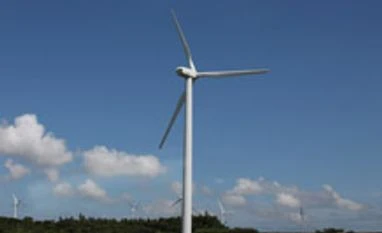In its bid to address lack of proper wind power evacuation infrastructure in the state, the Tamil Nadu government plans to take up projects with a total cost of Rs 5,998 crore. However, to take this plan forward, chief minister J Jayalalithaa has sought Prime Minister's intervention in releasing Rs 1,500 crore from the National Clean Energy Fund (NCEF) to the state.
In a letter to the PM, she said, the main issue which prevented the state from reaping full benefits of installed wind capacity was the lack of adequate power evacuation infrastructure.
Against this backdrop, the power generated has become expensive, said Jayalalithaa, adding inadequate evacuation capacity has meant that there are situations when the wind turbines have been asked to back down due to lack of transmission capacity – although wind is a clean source of energy and the generation is also very cheap.
The third proposal for setting up 400 Kv substations with associated transmission lines at Karaikudi and other places in the state is being executed with Tamil Nadu’s own resources. The two validated proposals were placed before the inter ministerial group (IMG) chaired by the finance secretary, Government of India, on May 18, 2013, for appraisal prior to sanction, according to the chief minister.
While stating that she does not see any justification for the IMG’s stand for the project, particularly as it has the support of the Ministry of Power, Ministry of New and Renewable Energy and of the Union Planning Commission, the chief minister noted the Ministry of New and Renewable Energy had written again on July 19, 2013, to the Ministry of Finance to reconsider its stance.
Jayalalithaa has urged PM's "urgent” intervention to ensure that these two projects i, already cleared by the related ministries, are accorded necessary approvals and the eligible grant of Rs 1,500 crore from the NCEF.
Despite having an installed capacity of 7,145 Mw in the wind sector, the country's largest, Tamil Nadu has lost out to other states including Gujarat and Andhra Pradesh, in attracting more investments in the sector due to the poor evacuation infrastructure.
The state has planned to increase the wind power capacity by a further 5,000 Mw over the next five years. To boost the renewables generation, the state had announced 'Solar Policy' with the aim of installing 3,000 Mw of solar power in the next three years.
In a letter to the PM, she said, the main issue which prevented the state from reaping full benefits of installed wind capacity was the lack of adequate power evacuation infrastructure.
Against this backdrop, the power generated has become expensive, said Jayalalithaa, adding inadequate evacuation capacity has meant that there are situations when the wind turbines have been asked to back down due to lack of transmission capacity – although wind is a clean source of energy and the generation is also very cheap.
Also Read
She said the NCEF supported such projects and it was on this basis the Tamil Nadu Transmission Corporation submitted these projects developed in close co-ordination with the Ministry of New and Renewable Energy, for the creation of power evacuation infrastructure, exclusively for wind power. The Ministry of New & Renewable Energy, after consulting Power Grid Corporation of India Ltd and Central Electricity Authority, validated two of the three proposals at a total cost of Rs 3,758 crore and recommended approval of a grant of Rs 1,500 crore for these projects from the NCEF, she said.
The third proposal for setting up 400 Kv substations with associated transmission lines at Karaikudi and other places in the state is being executed with Tamil Nadu’s own resources. The two validated proposals were placed before the inter ministerial group (IMG) chaired by the finance secretary, Government of India, on May 18, 2013, for appraisal prior to sanction, according to the chief minister.
While stating that she does not see any justification for the IMG’s stand for the project, particularly as it has the support of the Ministry of Power, Ministry of New and Renewable Energy and of the Union Planning Commission, the chief minister noted the Ministry of New and Renewable Energy had written again on July 19, 2013, to the Ministry of Finance to reconsider its stance.
Jayalalithaa has urged PM's "urgent” intervention to ensure that these two projects i, already cleared by the related ministries, are accorded necessary approvals and the eligible grant of Rs 1,500 crore from the NCEF.
Despite having an installed capacity of 7,145 Mw in the wind sector, the country's largest, Tamil Nadu has lost out to other states including Gujarat and Andhra Pradesh, in attracting more investments in the sector due to the poor evacuation infrastructure.
The state has planned to increase the wind power capacity by a further 5,000 Mw over the next five years. To boost the renewables generation, the state had announced 'Solar Policy' with the aim of installing 3,000 Mw of solar power in the next three years.
)